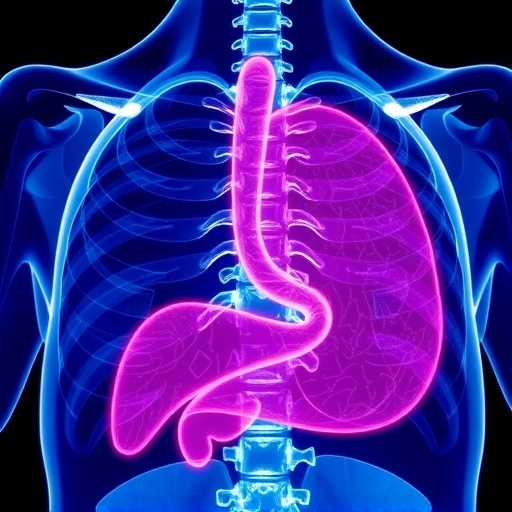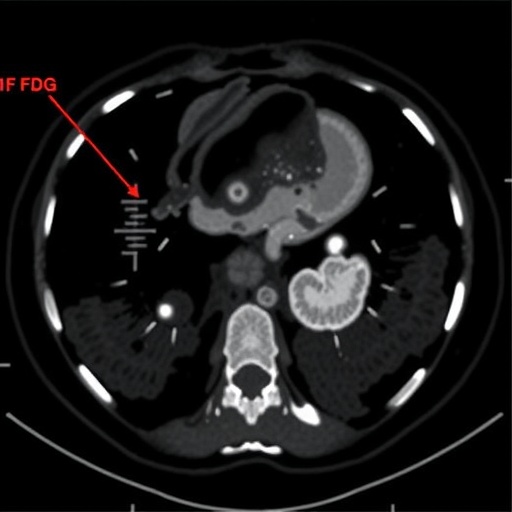
In an exciting development in the field of oncology, researchers have made significant strides in understanding the clinical outcomes and genomic biomarkers associated with immune checkpoint inhibitor-based therapies for cancer of unknown primary (CUP). This groundbreaking multicenter study, conducted by a team led by esteemed researchers Huang, Y., Huang, R., and Chen, M., promises to illuminate the complexities of this challenging diagnosis which often stumps clinicians due to the vague origins of the cancer. Their findings, published in the prestigious Journal of Cancer Research and Clinical Oncology, represent a pivotal turning point in anti-cancer therapies, particularly regarding how these therapies can be tailored to individual patients based on genomic profiles.
Immune checkpoint inhibitors have revolutionized cancer treatment over the last decade, leveraging the body’s immune system to combat malignant cells. This innovative approach has primarily focused on well-defined tumor types where the primary site of cancer is known: lung, melanoma, and renal cancers, to name a few. However, challenges arise in cases of cancer of unknown primary, where patients present metastatic disease without identifiable origins. The implications of such a diagnosis are profound, as traditional treatment modalities may not yield the same success rates.
The study by Huang and colleagues meticulously analyzed data from various institutions, offering a real-world perspective that is often missing from clinical trials. By incorporating a diverse cohort of patients with CUP, the researchers aimed to identify patterns and efficacy of immune checkpoint inhibitors in these individuals. The influx of genomic biomarker data aims to furnish oncologists with the necessary tools to make informed decisions tailored to each patient’s unique cancer profile, thus enhancing outcomes.
One compelling aspect of this study is the emphasis on genomic profiling. As scientists delve deeper into the genetic architectures of cancers, understanding tumor mutations and the corresponding immune responses has become crucial in cancer management. The study highlights how specific mutations correlate with patient responses to checkpoint inhibitors, thereby supporting a more personalized medicine approach. It suggests that certain genomic signatures can be accompanied by better outcomes in patients who are treated with these innovative therapies.
Moreover, the researchers perpetuate the crucial idea that comprehensive genomic testing should be standard practice for all patients diagnosed with CUP. With the rapid evolution of genomic technologies, identifying actionable mutations can guide therapeutic decisions. This strategy is not only applicable but vital, given the diverse biological behavior exhibited by CUP tumors. Elevating the status of genomic testing in clinical routines could lead to better patient stratification, ultimately resulting in improved treatment responses and survival outcomes.
The study also delves into the nuances of how these therapies are affecting overall survival rates and progression-free survival among CUP patients. Early data suggest that patients who receive immune checkpoint inhibitors experience significantly improved outcomes compared to traditional therapies. These findings come as a beacon of hope for a cohort that has historically faced bleak prognoses. As the authors elaborate in their findings, the combination of immune therapy with careful monitoring and genomic stratification could potentially transform the clinical landscape for these patients.
Importantly, the research does not shy away from discussing the challenges and limitations inherent in these therapies. The researchers caution that while immune checkpoint inhibitors show promise, not every patient will respond favorably to these treatments. Factors such as tumor burden, microenvironment, and even prior treatment history can significantly influence responses and outcomes. Thus, their findings reinforce the necessity for continued research to refine and optimize treatment strategies tailored to this unique patient population.
In dissecting the intricacies of immune responses in CUP patients, the team also emphasizes the significance of biomarkers in identifying potential therapeutic targets. The findings signal a shift toward a biomarker-driven approach in CUP management, encouraging further exploration into the genetic makeup of individual tumors that may unlock new treatment avenues. Such discoveries could lead to developing combination treatments that harness both immune and targeted therapies, maximizing efficacy for patients who previously had limited options.
The impact of this study cannot be overstated; it paves the way for promising advancements in cancer treatment protocols for CUP. The implications for clinical practice are profound, suggesting a new paradigm of care that prioritizes tailored therapy derived from robust genomic data analyses. This proactive approach will not only enhance treatment strategies but could also enable oncologists to better counsel patients about their prognosis and treatment options.
In addition to highlighting the successes, the study also engages in critical reflections on patient accessibility to these advanced therapies. The authors acknowledge that disparities in healthcare access can hinder specific populations from benefitting from such cutting-edge treatments. Hence, they advocate for broader initiatives aimed at reducing barriers, thus ensuring all patients with CUP can partake in the advancements made in oncological treatments.
As healthcare systems continue to grapple with integrating precision medicine into routine practice, the findings from this study serve as a guiding light. Ensuring that healthcare providers are equipped with the latest insights and technologies is crucial in enhancing patient care. Future directions following this research will focus on multi-institutional collaborations that widen the scope of studies, broadening the understanding of how immune therapies can be generically beneficial across various cancer types, with CUP at the forefront.
These advancements underscore an essential tenet of cancer research: the importance of collaboration across disciplines and institutions. As researchers, clinicians, and patients come together, we form a holistic approach to understanding and combatting the complexities of cancer – one that embraces both the technological advancements and the deeply personal nature of cancer care.
In conclusion, the groundbreaking work presented by Huang, R., and Chen serves as an inspiring reminder of the potential that lies in scientific exploration. Their findings pave the way for future endeavors in cancer research, emphasizing a patient-centric approach that hinges on understanding genetic landscapes and the immune landscape. As the conversation surrounding CUP continues to evolve, this research will undoubtedly influence how healthcare professionals view and treat this challenging diagnosis.
With continual advancements and a collaborative spirit, the future of cancer of unknown primary promises to be one where precision medicine and innovative therapies significantly improve outcomes and fundamentally alter the prognosis for patients who have long been left with few options.
Subject of Research: Clinical outcome and genomic biomarkers of immune checkpoint inhibitor-based therapies for cancer of unknown primary.
Article Title: Clinical outcome and genomic biomarkers of immune checkpoint inhibitor-based therapies for cancer of unknown primary: a multicenter, real-world study.
Article References:
Huang, Y., Huang, R., Chen, M. et al. Clinical outcome and genomic biomarkers of immune checkpoint inhibitor-based therapies for cancer of unknown primary: a multicenter, real-world study. J Cancer Res Clin Oncol 151, 213 (2025). https://doi.org/10.1007/s00432-025-06261-3
Image Credits: AI Generated
DOI: 10.1007/s00432-025-06261-3
Keywords: immune checkpoint inhibitors, cancer of unknown primary, genomic biomarkers, clinical outcomes, personalized medicine
Tags: advancements in cancer research and clinical oncologycancer of unknown primary biomarkerschallenges in diagnosing CUPclinical outcomes in CUP researchgenomic profiles for cancer treatmentimmune checkpoint inhibitors in oncologyimplications of unknown primary cancer diagnosismulticenter study on cancer therapiesprecision medicine for unknown primary cancersrecent findings in cancer immunotherapyrevolutionary cancer treatment strategiestailored therapies for metastatic cancer




